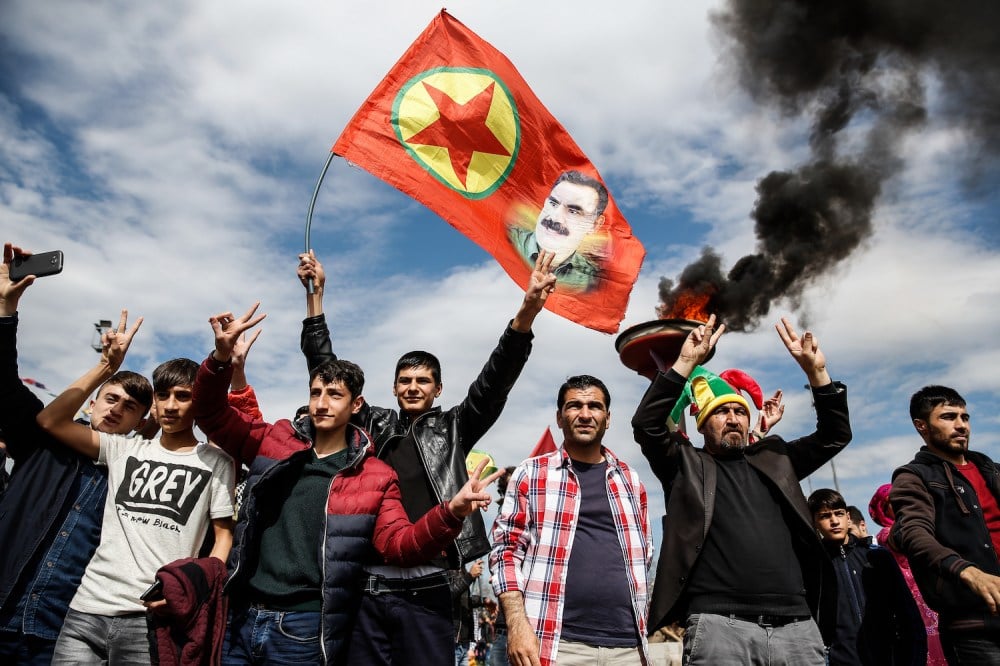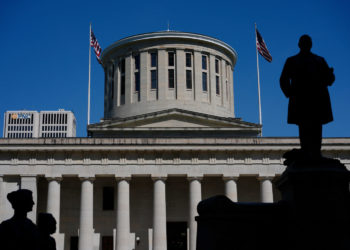Welcome back to World Brief, where we’re looking at an end to the Kurdish insurgency in Turkey, an easing of the U.S.-China trade war, and future talks between Russian President Vladimir Putin and Ukrainian President Volodymyr Zelensky.
Laying Down Arms
The Kurdistan Workers’ Party (PKK) announced on Monday that it will disband and stop its armed struggle against the Turkish state, ending one of the region’s longest insurgencies. Analysts say that the move could improve the country’s political and economic stability while also easing tensions in neighboring Iraq and Syria, which have large Kurdish presences.
The PKK launched its decades-long insurgency in 1984 with the intention of creating an independent Kurdish state; Kurds make up roughly 15 percent to 20 percent of Turkey’s population. However, over the years, the group’s goals have shifted to instead seek greater Kurdish rights and establish limited autonomy in the country’s southeastern region.
Yet the conflict remained deadly. PKK attacks on military and civilian targets as well as Turkish military assaults on militants and their communities have killed more than 40,000 people. Past peace efforts, including negotiations in 1993 and 2015, only sparked more fighting. Many Western allies of Turkey—including the European Union, the United Kingdom, and the United States—classify the PKK as a terrorist group.
In February, jailed PKK leader Abdullah Ocalan had called on the group to disband, saying that the PKK had outlived its initial purpose and could now make better progress via political avenues. The group appeared to echo that sentiment on Monday. “The PKK struggle has broken the policy of denial and annihilation of our people and brought the Kurdish issue to a point of solving it through democratic politics,” it said, adding that Ocalan would manage the process of disarmament.
According to a PKK official who spoke to Reuters, all military operations will cease “immediately”; weapons handovers will be contingent on Ankara’s response, including its approach to such issues as the fate of PKK fighters and leaders as well as Kurdish rights in the country.
Ending the pro-Kurdish insurgency marks a major win for Turkish President Recep Tayyip Erdogan, and Turkish officials were quick to celebrate the historic decision. This is a “significant step towards the goal of a terror-free Turkey,” Erdogan’s ruling party said, with party spokesperson Omer Celik adding on X that “[i]f terrorism is completely eradicated, it will open the door to a new era.”
The PKK’s decision could also calm political pressures in Iraq and Syria. Following Ocalan’s call in February, the Kurdish-led Syrian Democratic Forces (SDF) signed an agreement with interim Syrian President Ahmed al-Sharaa to secure Syrian Kurds’ rights and integrate the SDF into state institutions.
However, it is unclear if the PKK’s decision will affect other Kurdish groups. The People’s Defense Units, another pro-Kurdish militia in Syria, has previously said that Ocalan’s demands do not apply to its operations.
“What’s clear is the Kurdish question in Syria cannot be addressed through the same lens as Turkey’s conflict with the PKK,” Mashuq Kurt and Bilal Ata Aktas argued in Foreign Policy last month.
Today’s Most Read
- Joseph Nye Was the Champion of a World That No Longer Exists by Suzanne Nossel
- The Long History of U.S.-Canada War Plans by Justin Ling
- How Progressives Are Unwittingly Aiding the Rise of Autocracy by Kenneth Roth
The World This Week
Tuesday, May 13: German Chancellor Friedrich Merz hosts Greek Prime Minister Kyriakos Mitsotakis in Berlin.
Brazilian President Luiz Inácio Lula da Silva concludes a two-day trip to China.
Thursday, May 15: EU trade ministers convene in Brussels to discuss European-U.S. trade relations while trade ministers in the Asia-Pacific Economic Cooperation group begin a two-day meeting in South Korea.
Saturday, May 17: Iraq hosts the League of Arab States.
Sunday, May 18: Poland holds a presidential election.
Portugal holds early parliamentary elections.
Romania holds the second round of its presidential election rerun
What We’re Following
Easing the trade war. The United States and China reached a deal on Monday to drop their respective tariffs by 115 percentage points for 90 days, beginning Wednesday. Under the agreement, Washington will reduce its duties from 145 percent to 30 percent, and Beijing will lower its levies from 125 percent to 10 percent.
“We concluded that we have a shared interest,” U.S. Treasury Secretary Scott Bessent said in Geneva following talks with senior Chinese officials over the weekend. “The consensus from both delegations is that neither side wanted a decoupling.”
Bessent added that ongoing negotiations may also include ways for China to purchase more American goods. This would help narrow the U.S. trade deficit—the reason that U.S. President Donald Trump declared a trade war on nearly all of Washington’s trading partners, including Beijing.
Global stock markets surged on Monday following the news, with the Hang Seng Index in Hong Kong and the S&P 500 in the United States both jumping around 3 percent.
“What’s striking is how quickly the United States and China were able to hammer out this initial deal—even faster than the breakneck escalation that saw the United States jack up tariffs on China three times within one week in April,” FP’s Lili Pike wrote on Monday.
Midnight ultimatum. European leaders warned Russia on Monday that it will face devastating sanctions if the Kremlin does not agree by midnight to implement a 30-day air, land, and sea cease-fire with Ukraine. Such a truce initially had U.S. support, but Trump appeared on Monday to have backtracked from this position by pushing for direct talks between Russian President Vladimir Putin and Ukrainian President Volodymyr Zelensky instead of first insisting on a cease-fire.
Putin proposed such a meeting over the weekend, to be held on Thursday. Although Moscow said there were no preconditions, the Kremlin is demanding that the talks center on a 2022 Russian proposal that would reduce Ukraine’s military, lock Kyiv out of NATO, and give Russia veto power over any future military assistance for Ukraine. Kyiv did not accept these terms at the time.
However, Zelensky agreed to participate in Thursday’s summit after Trump publicly urged him to do so. And on Monday, Trump suggested that he may travel to Turkey to assist mediation efforts. The U.S. president is set to begin a three-day tour of the Middle East on Tuesday.
Winner in absentia. Former Philippine President Rodrigo Duterte won reelection for mayor of Davao City on Monday despite being imprisoned at The Hague, where he is facing charges of crimes against humanity. According to initial results, Duterte far surpassed his nearest opponent in the midterm election, securing more than 400,000 votes. But as he is being held at the International Criminal Court, it is unclear how he would take his oath and assume office.
Duterte was arrested in March and extradited to The Hague for alleged crimes committed as part of his so-called war on drugs, during which tens of thousands of people were killed. His daughter, impeached Vice President Sara Duterte, has pushed for his release, arguing that he is a victim of political persecution.
“We will continue to hold the government accountable, advocate for the issues that matter, and work tirelessly to serve as a strong and constructive opposition,” Sara said following Monday’s results, which also included major wins for some of the elder Duterte’s most loyal aides.
Odds and Ends
Nothing says moving stress like rediscovering old belongings once thought lost. But Argentina’s Supreme Court takes the cake for the most controversial items found. On Sunday, the court said it had recovered dozens of boxes that were filled with Nazi materials, including personal effects and propaganda, while cleaning out its basement as it prepares for a Supreme Court museum.
It is unclear why the items were sent to Buenos Aires or what the court did with them at the time, but the large shipment was inspected by local customs authorities when it arrived for fear that its contents could affect the country’s stated neutrality. The Holocaust Museum in Buenos Aires has since been invited to participate in the boxes’ preservation and inventory.
The post PKK to Disband, End Insurgency in Turkey appeared first on Foreign Policy.




